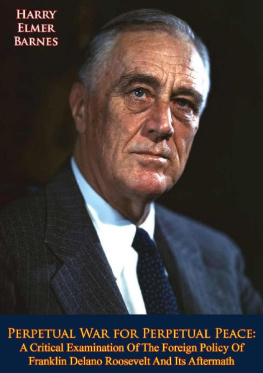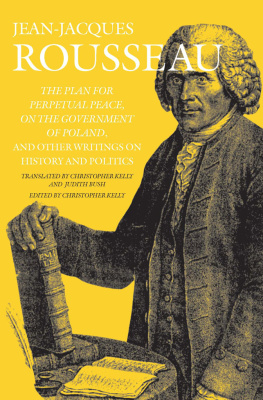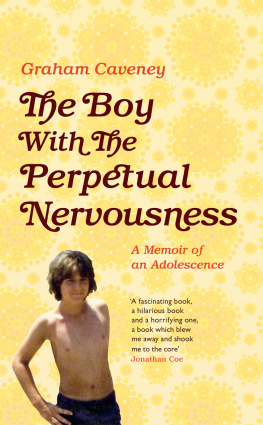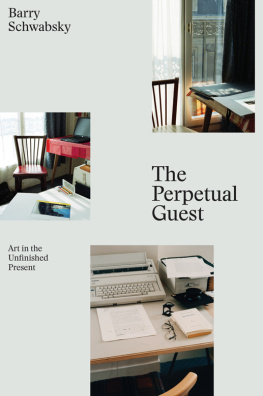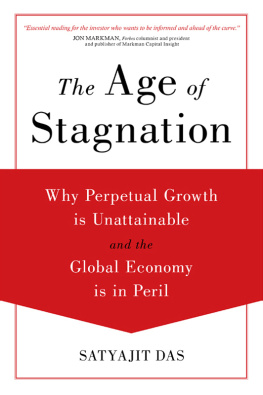Harry Elmer Barnes - Perpetual War for Perpetual Peace
Here you can read online Harry Elmer Barnes - Perpetual War for Perpetual Peace full text of the book (entire story) in english for free. Download pdf and epub, get meaning, cover and reviews about this ebook. year: 2018, publisher: Ostara Publications, genre: Politics. Description of the work, (preface) as well as reviews are available. Best literature library LitArk.com created for fans of good reading and offers a wide selection of genres:
Romance novel
Science fiction
Adventure
Detective
Science
History
Home and family
Prose
Art
Politics
Computer
Non-fiction
Religion
Business
Children
Humor
Choose a favorite category and find really read worthwhile books. Enjoy immersion in the world of imagination, feel the emotions of the characters or learn something new for yourself, make an fascinating discovery.
- Book:Perpetual War for Perpetual Peace
- Author:
- Publisher:Ostara Publications
- Genre:
- Year:2018
- Rating:4 / 5
- Favourites:Add to favourites
- Your mark:
- 80
- 1
- 2
- 3
- 4
- 5
Perpetual War for Perpetual Peace: summary, description and annotation
We offer to read an annotation, description, summary or preface (depends on what the author of the book "Perpetual War for Perpetual Peace" wrote himself). If you haven't found the necessary information about the book — write in the comments, we will try to find it.
Perpetual War for Perpetual Peace — read online for free the complete book (whole text) full work
Below is the text of the book, divided by pages. System saving the place of the last page read, allows you to conveniently read the book "Perpetual War for Perpetual Peace" online for free, without having to search again every time where you left off. Put a bookmark, and you can go to the page where you finished reading at any time.
Font size:
Interval:
Bookmark:

This edition is published by PICKLE PARTNERS PUBLISHINGwww.pp-publishing.com
To join our mailing list for new titles or for issues with our bookspicklepublishing@gmail.com
Or on Facebook
Text originally published in 1953 under the same title.
Pickle Partners Publishing 2016, all rights reserved. No part of this publication may be reproduced, stored in a retrieval system or transmitted by any means, electrical, mechanical or otherwise without the written permission of the copyright holder.
Publishers Note
Although in most cases we have retained the Authors original spelling and grammar to authentically reproduce the work of the Author and the original intent of such material, some additional notes and clarifications have been added for the modern readers benefit.
We have also made every effort to include all maps and illustrations of the original edition the limitations of formatting do not allow of including larger maps, we will upload as many of these maps as possible.
PERPETUAL WAR FOR PERPETUAL PEACE:
A CRITICAL EXAMINATION OF THE FOREIGN POLICY OF FRANKLIN DELANO ROOSEVELT AND ITS AFTERMATH
EDITED BY
HARRY ELMER BARNES
with the collaboration of
WILLIAM HENRY CHAMBERLIN, PERCY L. GREAVES, JR., GEORGE
A. LUNDBERG, GEORGE MORGENSTERN, WILLIAM L. NEUMANN,
FREDERIC R. SANBORN, AND CHARLES CALLAN TANSILL
America goes not abroad in search of monsters to destroy. She is the well-wisher to the freedom and independence of all. She is the champion and vindicator only of her own. She will recommend the general cause by the countenance of her voice, and the benignant sympathy of her example. She well knows that by once enlisting under other banners than her own, were they even the banners of foreign independence, she would involve herself beyond the power of extrication in all the wars of interest and intrigue, of individual avarice, envy and ambition, which assume the colors and usurp the standards of freedom. The fundamental maxims of her policy would insensibly change from liberty to force.
JOHN QUINCY ADAMS
TABLE OF CONTENTS
Contents
DEDICATION
DEDICATED TO THE MEMORY OF
CHARLES AUSTIN BEARD
Tribute to
CHARLES AUSTIN BEARD
Great eagle, knower of the skies,
Of windy portents, eclipses and the dust-blown mantracks
Crossing and re-crossing in quicksands and stone.
Under his scrutiny the revealed bones
And girth of the past; the string-led figures; the gods in the machine.
The great spirit flies, sifting the air, translating earth shapes against the moving screen.
Tame pronouncers, parrots, gulls and shamans utter cries,
Communicate their shrill distress; declare him less than the familiar apes.
But the shadow of the spirit enfolds them all,
And here and there with shielded eyes
People have seen the steady wings and far light striking them,
And here and there recall how long ago the fire was brought,
The vultures and the rock, and will remember him.
EUGENE DAVIDSON
PREFACE
This book is a critical survey and appraisal of the development of American foreign policy during the Presidency of Franklin D. Roosevelt and of its results, as they have affected the course of world history, the national interest of the United States, and the welfare of its citizens.
It was originally conceived by the editor as an answer to Basil Rauchs Roosevelt from Munich to Pearl Harbor, the first full-sized effort to whitewash the interventionist foreign policy of President Roosevelt. When the prospective contributors were approached, they, without exception, questioned the logic and wisdom of directing the fire of a piece of heavy artillery against a mouse, however sleek and pretentious. They suggested, instead, a comprehensive review of the interventionist foreign policy since 1937 which would constitute an effective and enduring answer to the whitewashing and blackout contingents as a group, present and future. The editor has deferred to their superior judgment. Professor Rauchs contentions, however, receive adequate attention, not only incidentally throughout the volume but directly in the chapter by Professor Lundberg.
The book here presented is not only an account of the actual course and aftermath of Roosevelt diplomacy, such as has already been factually and courageously set forth by George Morgenstern, Charles Austin Beard, Frederic R. Sanborn, William Henry Chamberlin, and Charles Callan Tansill, but it is also a consideration of the background and results of this diplomacy, and of the great difficulties met today by historians, social scientists, and publicists who honestly seek to discover and publish the facts relative to the foreign policies of Presidents Roosevelt and Truman. But the book is not a partisan polemic. The editor and the contributors fully recognize that more can be said in defense of the foreign policy of Messrs. Roosevelt and Truman than in behalf of the fantastic policy of their bipartisan Republican supporters, who cannot even invoke realistic political expediency in support of their attitude and conduct. Even much of the Republican criticism of the Roosevelt-Truman foreign policy boils down to little more than the allegation that it has not been sufficiently aggressive, ruthless, and global.
The title of this book was suggested to the editor by the late Charles Austin Beard in our last conversation. With characteristic cogency and incisiveness, Beard held that the foreign policy of Presidents Roosevelt and Truman, and of their ideological supporters, whether Democrats, Republicans, Socialists, or Communists, could most accurately and precisely be described by the phrase perpetual war for perpetual peace. Events since that time (June, 1947) have further reinforced Beards sagacity and insight in this respect. George Orwells brilliant and profoundly prophetic novel, Nineteen Eighty-Four, has since shown how a new political order throughout the world may be erected on the premises and implications of this goal of perpetual war, presented in the guise of a global struggle of free peoples for perpetual peace.
There is already alarming evidence that this is just the type of regime into which the world is now moving, consciously or unconsciously, as a result of the foreign policy forged by Roosevelt, Truman, Churchill, and Stalin. The main practical purpose of this volume is to acquaint the American public with this fact before we reach the point of no return and it is too late to revise our course and resume a sane foreign policy, based on continentalism, national interest, ideological coexistence, international urbanity, and rational co-operation in world affairs. If trends continue as they have during the last fifteen years we shall soon reach this point of no return, and can only anticipate interminable wars, disguised as noble gestures for peace. Such an era could only culminate in a third world war which might well, as Arnold J. Toynbee has suggested, leave only the pygmies in remote jungles, or even the apes and ants, to carry on the cultural traditions of mankind.
The contributors to this volume represent the outstanding living revisionist historians, social scientists, and publicists who have thus far contributed actively to the furtherance of revisionist studies relative to the Second World War. Each is a specialist in the field which he treats in his chapter. An effort has been made to cover adequately all the main aspects of the recent foreign policy of the United States.
The editor deals with the blackout of material concerning the revisionist position relative to responsibility for the Second World War and the cold war. Professor Tansill covers the European background of the origins of the Second World War and the development of Japanese-American relations to the eve of Pearl Harbor. Dr. Sanborn describes the origins of the interventionist foreign policy of President Roosevelt, his words and actions bearing on European diplomacy prior to the outbreak of the Second World War, the flagrant and ever-increasing violations of neutrality by the Roosevelt administration, and the fruitless efforts of Mr. Roosevelt to induce Germany and Italy to react to this policy by making a declaration of war on the United States. Professor Neumann treats the broader background of the American attitude of studied hostility toward Japan, as exemplified in the diplomacy of Secretaries Stimson and Hull and of President Franklin D. Roosevelt, including also the menacing naval policy of the latter. Mr. Morgenstern provides us with a succinct survey of the diplomacy and events that led into and through Pearl Harbor. Mr. Greaves relates the scandalous story of fakery and evasion involved in most of the investigations of responsibility for Pearl Harbor and the attempts to discredit such of the investigations as did honestly seek to ascertain the truth. Mr. Chamberlin handles crisply the evidence relating to the complete bankruptcy of the Roosevelt-Hull-Stimson-Morgenthau foreign policy and the incredible and enduring calamities it has imposed on the world of today. Professor Lundberg subjects to sociological analysis the contesting trends in American foreign policy: the continentalism and neutrality which gave us security, prosperity, and peace, and the global meddling which has reduced our liberties, faced us with national fiscal bankruptcy, plunged us into two world wars and headed us ominously toward a third, destroyed our security, and undermined public morale and official integrity.
Next pageFont size:
Interval:
Bookmark:
Similar books «Perpetual War for Perpetual Peace»
Look at similar books to Perpetual War for Perpetual Peace. We have selected literature similar in name and meaning in the hope of providing readers with more options to find new, interesting, not yet read works.
Discussion, reviews of the book Perpetual War for Perpetual Peace and just readers' own opinions. Leave your comments, write what you think about the work, its meaning or the main characters. Specify what exactly you liked and what you didn't like, and why you think so.

